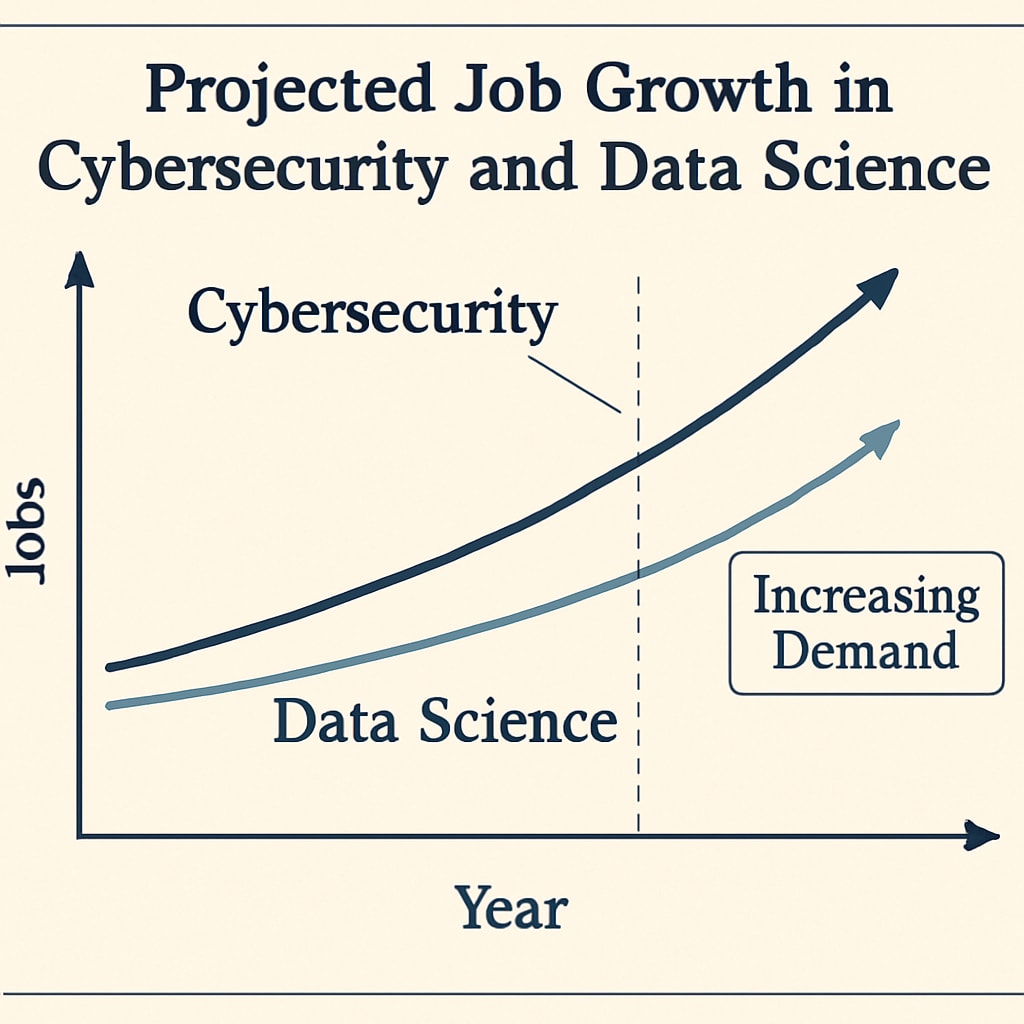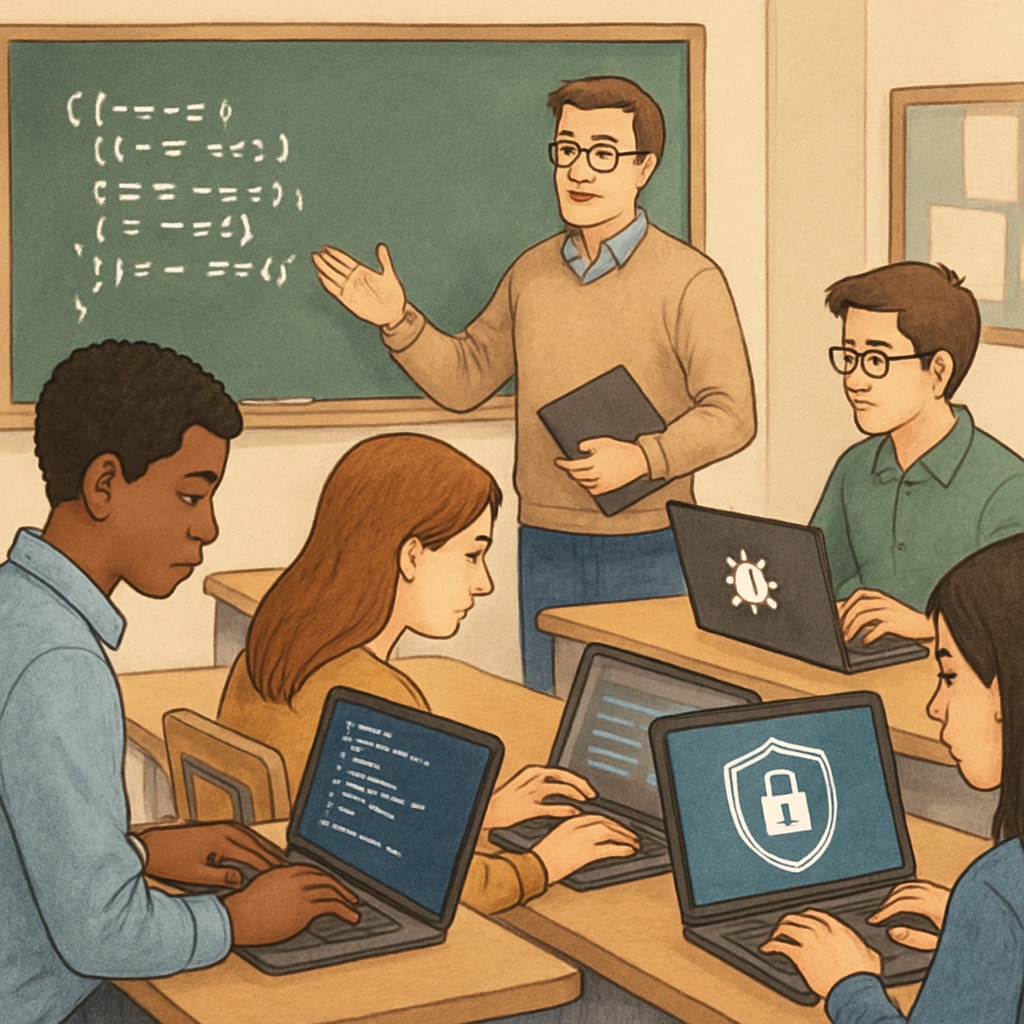In today’s rapidly advancing digital world, cybersecurity, data science engineering, and career choices have become a critical focus for individuals and educational institutions alike. These fields are not only among the most promising in terms of job opportunities and growth but are also essential for shaping the secure and data-driven future of our global society. For students in the K12 education phase, early exposure to these career paths can ignite their curiosity, build foundational skills, and help them make informed career decisions later in life. This article will explore the importance of cultivating career awareness in cybersecurity and data science engineering during the K12 years while also examining the long-term career prospects these fields offer.
Why Cybersecurity and Data Science Are Thriving Fields
Cybersecurity and data science are at the forefront of technological innovation. The increasing reliance on digital systems across industries—from healthcare to finance—has exponentially raised the demand for professionals in these domains. Here’s why these fields are thriving:
- Cybersecurity: With the rise in cyberattacks and data breaches, organizations are prioritizing the protection of sensitive information. Cybersecurity professionals help safeguard networks, systems, and data from malicious threats, making their roles indispensable.
- Data Science: As businesses and governments rely more heavily on data-driven decision-making, data scientists are needed to analyze, interpret, and extract valuable insights from vast datasets. Their expertise contributes to smarter strategies and innovation.
According to the U.S. Bureau of Labor Statistics, cybersecurity jobs are projected to grow by 35% from 2021 to 2031, while data science roles are expected to increase by 36% during the same period. These growth rates highlight the immense career potential in both fields.

Incorporating Career Awareness in K12 Education
To prepare students for the future workforce, K12 education should emphasize early exposure to cybersecurity and data science. Schools can adopt various strategies to build awareness and interest among students:
- Hands-On Learning: Providing students with opportunities to engage in coding, ethical hacking simulations, and data analysis projects can spark their interest.
- Guest Speakers and Mentors: Inviting professionals from cybersecurity and data science fields to share their experiences can offer students real-world insights.
- Extracurricular Activities: Clubs and competitions like cybersecurity challenges or data hackathons can foster practical skills and teamwork.
- Curriculum Integration: Introducing cybersecurity and data science concepts into STEM (Science, Technology, Engineering, and Mathematics) courses can help students understand their applications.
By adopting these approaches, educators can nurture a generation that is not only aware of these career options but also equipped with the skills to excel in them.

Career Pathways in Cybersecurity and Data Science
Both cybersecurity and data science offer diverse career paths, allowing professionals to specialize in areas that align with their interests and skills:
- Cybersecurity: Career options include roles such as Security Analyst, Penetration Tester, Incident Responder, and Chief Information Security Officer (CISO). Each role focuses on different aspects of digital security, from identifying vulnerabilities to implementing strategic defenses.
- Data Science: Roles like Data Analyst, Machine Learning Engineer, Data Engineer, and Chief Data Officer (CDO) cater to various parts of the data lifecycle, from collection and analysis to strategy development.
These fields also offer opportunities for continuous growth and learning, as new technologies and challenges emerge. With certifications, advanced degrees, and specialized training, professionals can advance into leadership roles or pivot to new niches within the industry.
The Role of Parents and Educators
While schools play a significant role in career education, parents and educators are equally crucial in guiding students. Encouraging participation in relevant programs, offering resources like online courses, and fostering curiosity about technology can make a significant difference. For example, platforms like Coursera and edX provide accessible learning opportunities for students interested in exploring these fields further.
Moreover, emphasizing the real-world impact of these careers—such as preventing cybercrime or solving global challenges through data—can inspire students to pursue them passionately.
As a result, collaborative efforts between schools, parents, and the broader community are essential to building a pipeline of future cybersecurity and data science professionals.
Conclusion: A Future of Possibilities
In conclusion, cybersecurity, data science engineering, and career choices represent not just individual career opportunities but also critical components of a thriving, secure digital society. By fostering awareness and interest in these fields during the K12 years, we can equip students with the knowledge and skills they need to succeed in the workforce of tomorrow. As the demand for professionals in these domains continues to grow, the possibilities for future generations are limitless. Let us invest in education today to secure a brighter and smarter future for all.


